I promised you more treats & here they are.😀🍬
(Thread)
(Thread)
For the migrant rights project that I’m working on with @LawCentres I spoke with Jamila from @ATLEUnit about their amazing work seeking redress for trafficking survivors.
Jamila gave me a mini-masterclass on trafficking compensation claims. Her positivity, despite the ‘hostile environment’, was refreshing. 

Some of her clients are initially scared to take action and seek redress. Some fear accessing basic services like the police or doctor’s surgery, even when they need it badly. 
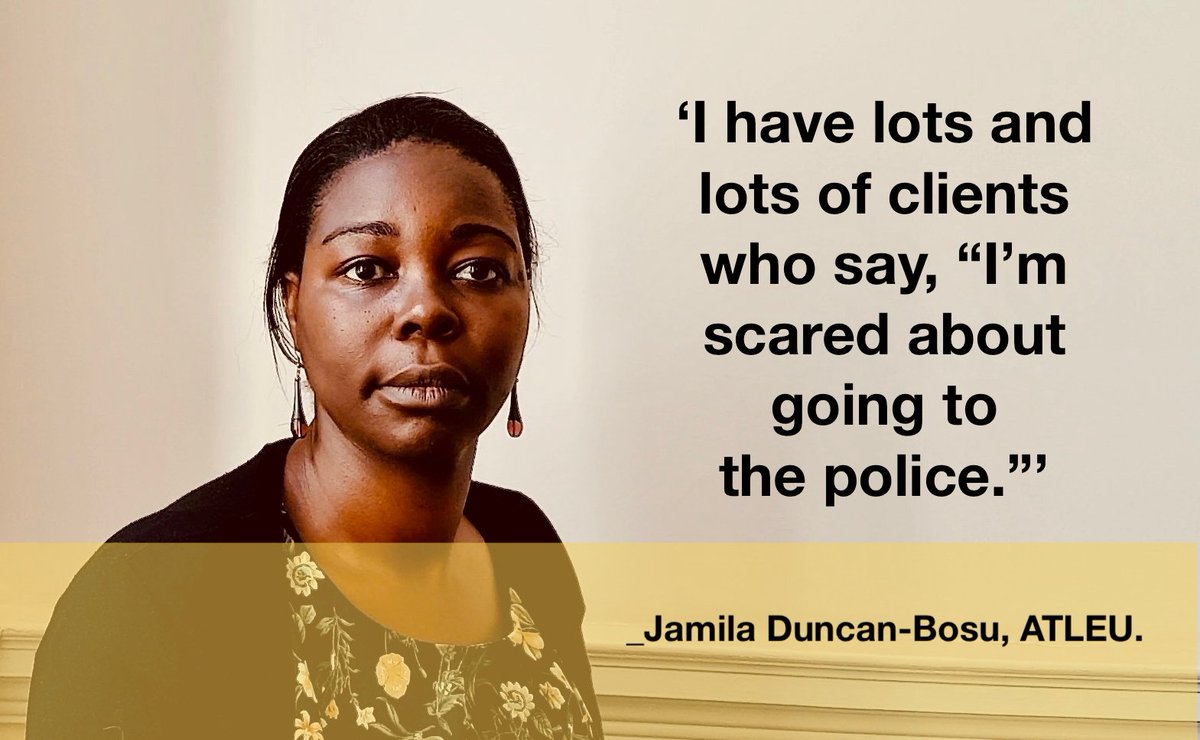
Jamila explained how compensation claims can give victims a sense of agency.
#modernslavery
#ukemploymentlaw
#modernslavery
#ukemploymentlaw

It's a bit like turning the tables on their traffickers / exploiters.
It’s powerful stuff. Can lead to life-changing compensation.
#modernslavery
#ukemploymentlaw
It’s powerful stuff. Can lead to life-changing compensation.
#modernslavery
#ukemploymentlaw
It’s a time of possibility for those seeking redress for trafficking victims. There are multiple avenues for claimants to explore (Employment Tribunal, civil courts, criminal procedures, claims against the state or sometimes all of the above). 

But for all the great work of @ATLEUnit and their colleagues at @Kalayaan & @Hopeforjustice, there’s still huge demand for more trafficking compensation claims to be brought.
#modernslavery
#ukemploymentlaw
#modernslavery
#ukemploymentlaw
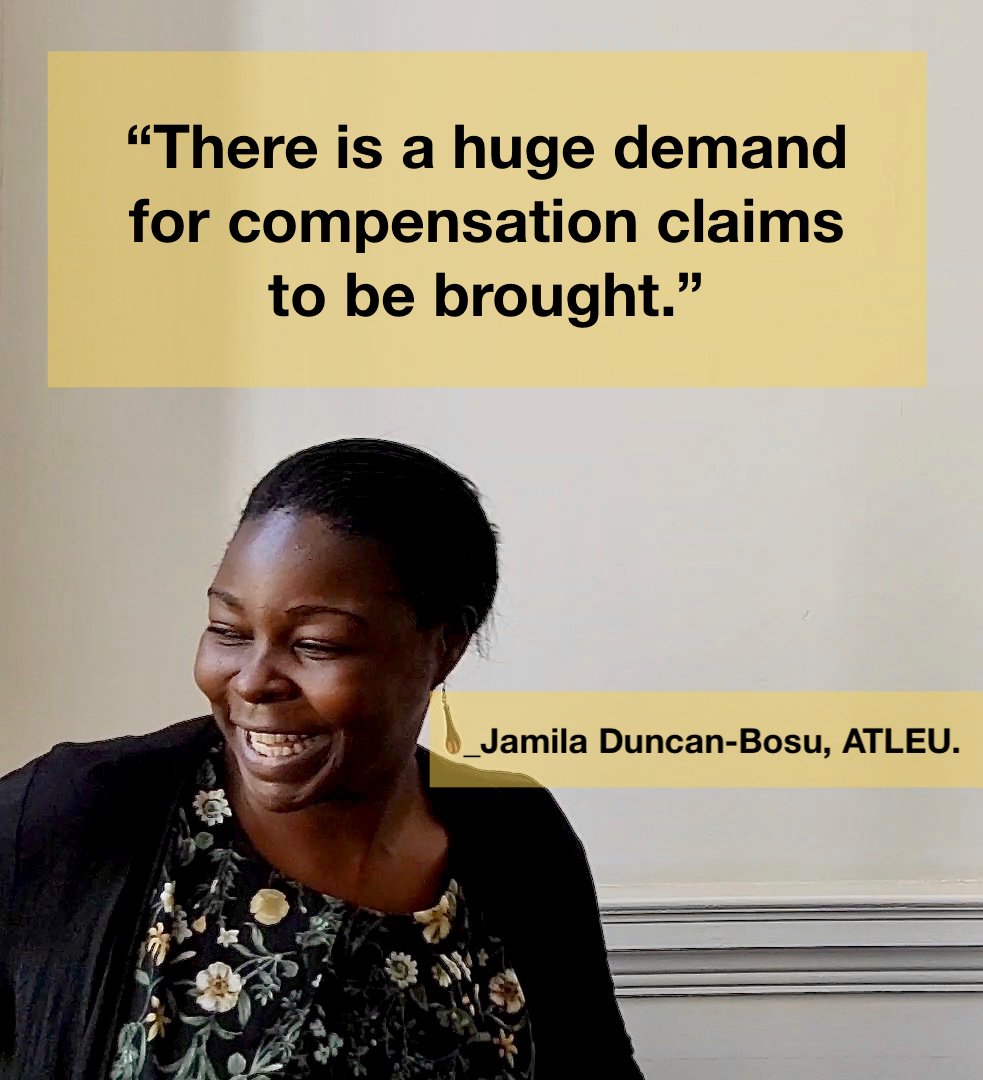
(See for example the recent stories about ‘dark factories’ investigated by @sarahoconnor_ and similar stories about pop-up brothels).
ft.com/content/e42732…
#modernslavery
#ukemploymentlaw
ft.com/content/e42732…
#modernslavery
#ukemploymentlaw
Claimants often face procedural hurdles. Limitation laws can be a big issue. They restrict the ability of trafficking survivors to seek compensation over many years of exploitation and abuse.
#modernslavery
#ukemploymentlaw
#modernslavery
#ukemploymentlaw
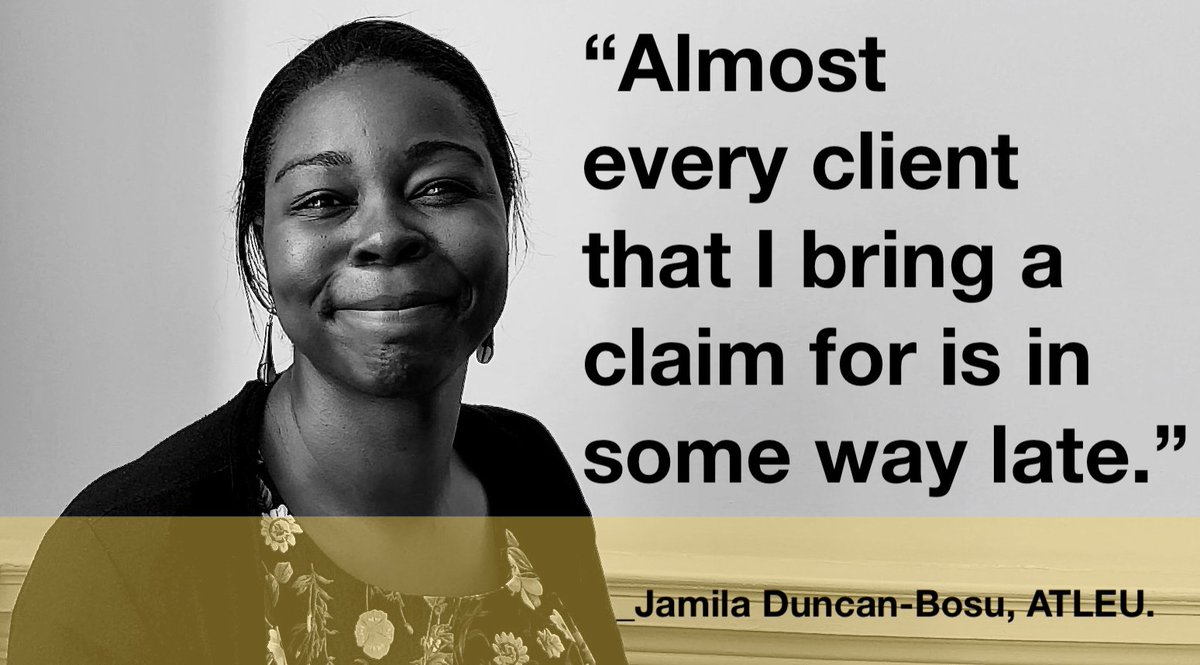
Limitation law is ill-suited to providing redress for victims who are stuck in modern slavery for 10 or 15 years.
#modernslavery
#ukemploymentlaw
#modernslavery
#ukemploymentlaw
Jamila's work is unphased by Brexit. Her focus is on ringfencing a body of case law principles that can withstand future legal changes. That approach seems to be working so far.
#brexit
#trafficking
#EU
#brexit
#trafficking
#EU
On Brexit, the strategy is to continue building domestic protections for victims of trafficking. 
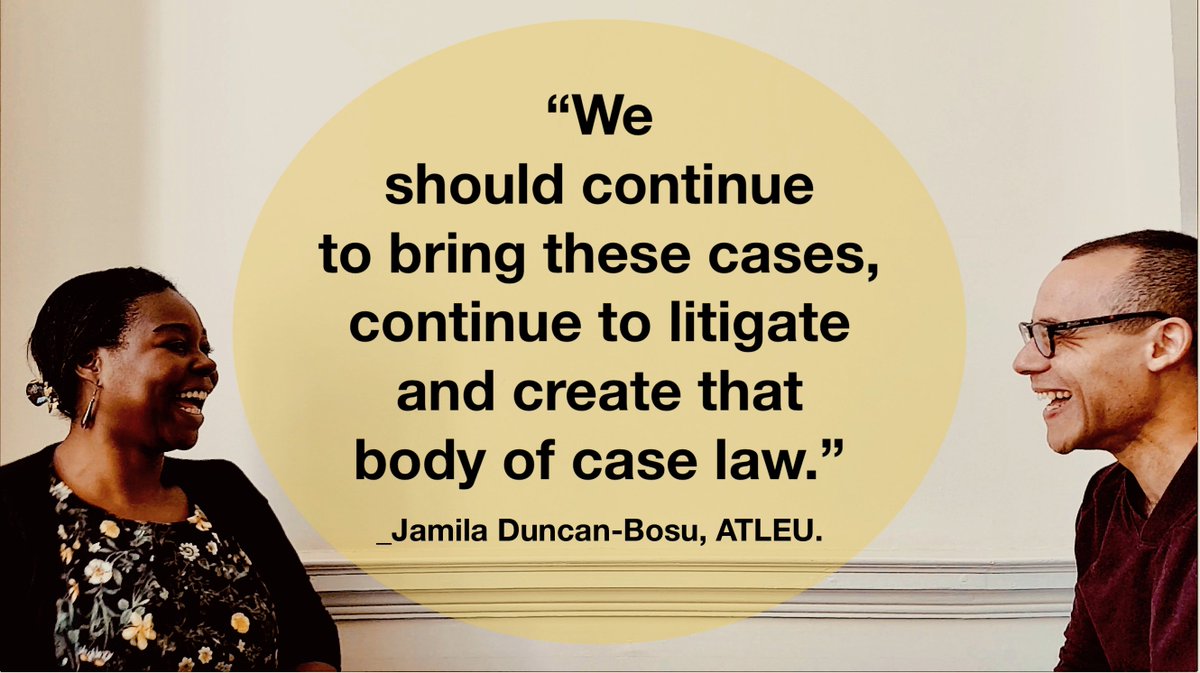
What may help, however, is reform.
That means a new tort of trafficking.
#modernslavery
#ukemploymentlaw
That means a new tort of trafficking.
#modernslavery
#ukemploymentlaw
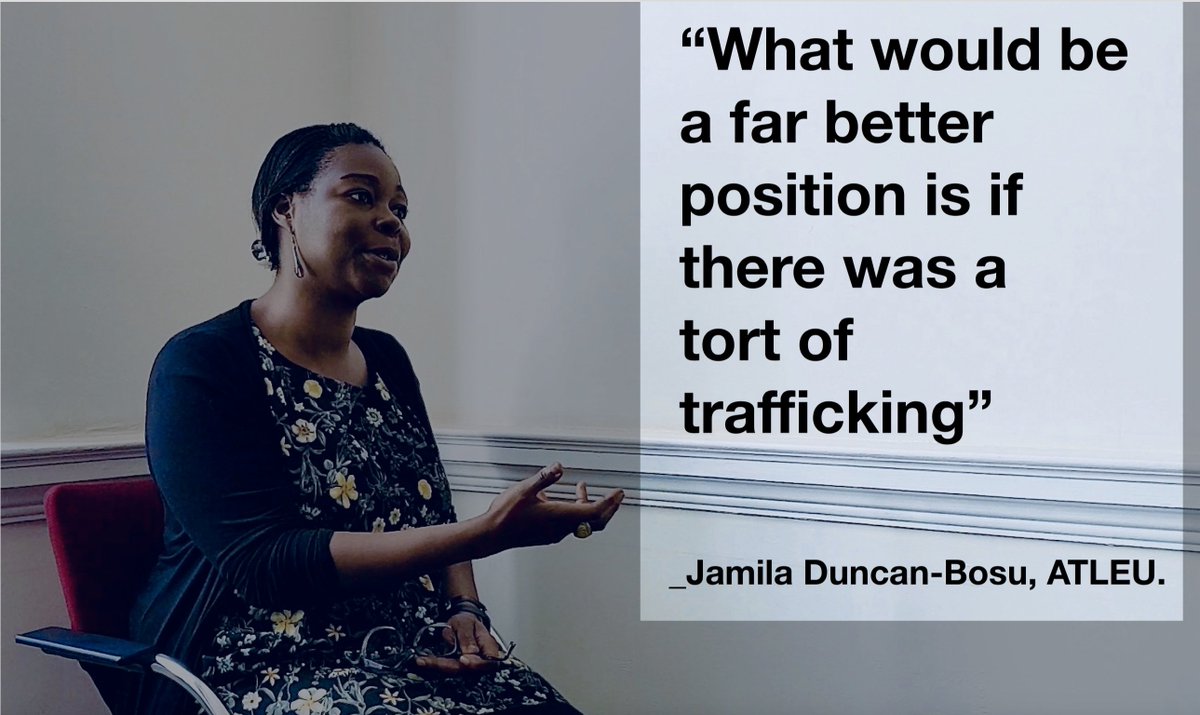
Here are some of the advantages of that explained...
Quick plug: @ATLEUnit's new online resource is called ATHUB, full of practical tips and guidance. I highly recommend it. Was essential for the ebook I wrote for @LawCentres. athub.org.uk
Phew, thanks for reading! Watch the full-length (15 min) interview here: lawmostly.com/2018/06/01/new…
Please share / RT and so on.
(ends)
Please share / RT and so on.
(ends)
• • •
Missing some Tweet in this thread? You can try to
force a refresh




